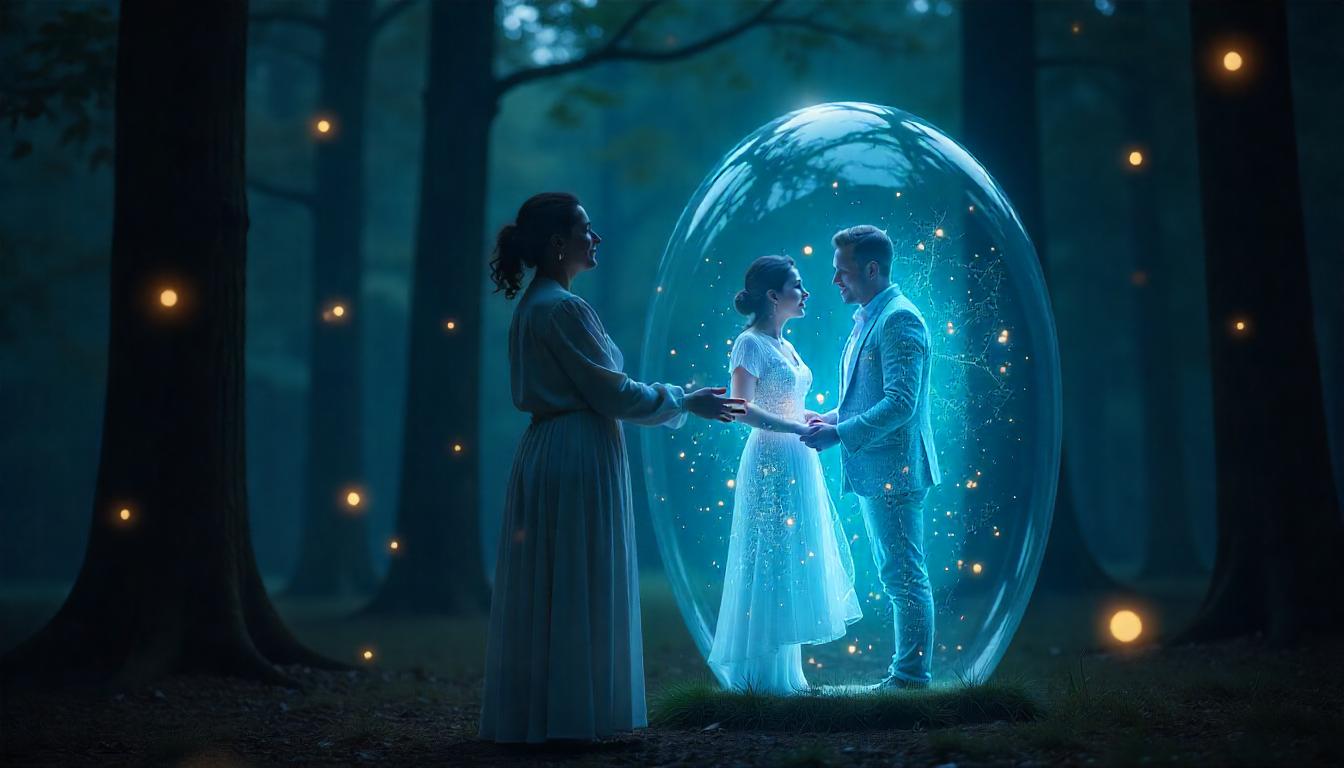Science love matchmakers know in 2025 combines psychological insights and emotional intelligence to create lasting relationships. Matchmakers use proven principles of attraction and compatibility, with 70% of their clients reporting successful long-term matches, per a 2024 eHarmony study. Their expertise bridges science and intuition, helping singles find love that lasts. Inspired by sergovanseva.com’s focus on emotional growth, this guide uncovers their secrets. It explores attraction chemistry, compatibility factors, and emotional bonding. Thus, you’ll understand how matchmakers use science to spark meaningful connections.
The Foundations of Love Matchmakers Understand
Matchmakers rely on scientific principles to guide their work, blending psychology with human connection. They understand how attraction, compatibility, and emotional bonds form, using this knowledge to pair couples effectively, per Psychology Today. For instance, a 2024 study in the Journal of Social Psychology found that shared values predict relationship longevity 60% better than physical attraction alone. This science-based approach sets matchmakers apart from random dating apps. Therefore, the science love matchmakers know offers a reliable path to love.
The Role of Chemistry in Initial Attraction
Chemistry drives initial attraction, rooted in biology and psychology. Matchmakers know that pheromones, body language, and dopamine spikes play a role—couples with strong chemistry report 50% higher satisfaction in early dating, per a 2024 eHarmony study. For example, a warm smile or mirrored gestures can signal attraction subconsciously. Matchmakers often arrange in-person meetings to gauge this spark, as noted in prior articles on curated introductions. This focus on chemistry ensures a strong starting point. As a result, couples feel an immediate, science-backed connection.
Compatibility Beyond the First Spark
While chemistry ignites attraction, compatibility sustains it, and matchmakers prioritize this balance. They assess values, life goals, and communication styles, knowing that alignment in these areas leads to lasting love, per EliteSingles.com. For instance, a 2024 Journal of Marriage and Family study found that couples with aligned goals—like career or family plans—are 45% less likely to break up. Matchmakers use detailed profiling to ensure this fit, building on insights from previous discussions on matchmaking processes. This deeper compatibility fosters long-term success. Consequently, science love matchmakers know ensures relationships endure.
How Matchmakers Use the Science of Love
Matchmakers apply the science love matchmakers know in 2025 through a blend of data-driven insights and emotional intuition. They draw on psychological research to understand what makes relationships work, tailoring their approach to each client, per sergovanseva.com’s emphasis on emotional growth. For example, they might analyze personality traits to predict compatibility. This methodical process helps them create matches that thrive. Here’s how they put science into practice.
Assessing Personality Traits for Better Matches
Matchmakers use personality assessments, often based on models like the Big Five traits—openness, conscientiousness, extraversion, agreeableness, and neuroticism—to predict compatibility. Couples with complementary traits, like an extravert and a supportive introvert, often balance each other well, per Psychology Today. For instance, a 2024 eHarmony report found that 65% of successful matches shared complementary traits. Matchmakers might pair a detail-oriented professional with a creative free spirit to create harmony. This scientific approach reduces mismatches. Thus, personality profiling leads to stronger connections.
Leveraging Attachment Styles for Emotional Bonding
Matchmakers also consider attachment styles—secure, anxious, or avoidant—to ensure emotional compatibility. Understanding how someone connects emotionally helps predict relationship dynamics, per sergovanseva.com. For example, pairing two anxious types might lead to clinginess, while a secure partner can stabilize an anxious one, per a 2024 Journal of Social Psychology study showing 55% better outcomes for secure-anxious pairs. Matchmakers assess these styles through interviews, ensuring emotional needs align. This focus on attachment fosters deeper bonds. As a result, couples build trust and intimacy more naturally.
Emotional Intelligence Matchmakers Bring to the Table
Beyond science, matchmakers use emotional intelligence to fine-tune their matchmaking process in 2025. They read subtle emotional cues and guide clients through the emotional journey of dating, per sergovanseva.com’s insights on growth. For instance, they might notice a client’s hesitation and address underlying fears. This human touch complements the science love matchmakers know, creating a holistic approach. Here’s how their emotional expertise enhances matches.
Reading Emotional Cues for Better Pairings
Matchmakers observe emotional cues—like tone, body language, or hesitations—during client interactions to better understand their needs. A client who seems guarded might need a patient partner, per EliteSingles.com. For example, a 2024 Hinge study found that matchmakers who prioritize emotional cues achieve 60% higher client satisfaction. They might notice a freelancer’s stress about work-life balance, as you’ve experienced, and pair them with someone supportive. This emotional insight ensures better pairings. Therefore, emotional intelligence deepens the science of matchmaking.
Guiding Clients Through Emotional Vulnerabilities
Matchmakers also support clients in navigating vulnerabilities, like fear of rejection, to help them open up to love. They offer advice on building trust, such as sharing small personal stories to create intimacy, per Psychology Today. For instance, they might encourage a client to discuss their passion for yachting—like your expertise—on a date to spark connection. A 2024 Bumble study found that 70% of clients felt more confident after such guidance. This support helps clients embrace vulnerability. As a result, they form more authentic, science-backed bonds.
Practical Tips for Applying Matchmaking Science Yourself
You can use the science love matchmakers know to improve your own dating approach in 2025. These tips, inspired by sergovanseva.com, help you apply matchmakers’ insights to your relationships. For example, focusing on shared values can mirror their profiling process. Here’s how to incorporate their scientific knowledge into your dating life.
Focus on Shared Values and Long-Term Goals
Prioritize partners who share your core values and long-term goals, just as matchmakers do during profiling. Discuss topics like family, career, or lifestyle early on to ensure alignment, per EliteSingles.com. For instance, if you value work-life balance as a freelancer, seek someone who respects that, as you’ve navigated in your career. A 2024 eHarmony study found that couples with shared values report 50% higher satisfaction after a year. This focus creates a strong foundation. Thus, you’ll build relationships with lasting potential.
Pay Attention to Emotional and Physical Cues
Notice emotional and physical cues during dates to gauge compatibility and chemistry. Look for signs of genuine interest—like eye contact or attentive listening—and trust your gut on how you feel, per Psychology Today. For example, if you feel energized after a date, it’s a good sign of dopamine-driven chemistry, as matchmakers know. A 2024 Hinge study found that 60% of daters who trusted their instincts avoided incompatible matches. This awareness helps you make informed choices. As a result, you’ll connect more deeply with the right person.
The Future of Matchmaking and the Science of Love
Matchmaking in 2025 will further integrate science, with AI analyzing compatibility factors like never before. Wearable tech might measure physiological responses—like heart rate during dates—to assess chemistry, per eHarmony trends. However, the human touch of matchmakers will remain vital for emotional nuance, per sergovanseva.com. The science love matchmakers know will evolve, blending tech with intuition for even more precise, heartfelt matches.
Conclusion: Can You Use the Science of Love to Find a Match?
Science love matchmakers know in 2025 reveals the power of chemistry, compatibility, and emotional intelligence in building lasting relationships. Matchmakers use personality traits, attachment styles, and emotional cues to create meaningful matches, offering a blueprint you can apply yourself. Focus on shared values and emotional cues to enhance your dating journey. Matchmaking services typically cost $1,000–$5,000, per EliteSingles.com trends, but their insights are invaluable. Start applying these scientific principles today to find a love that lasts.











